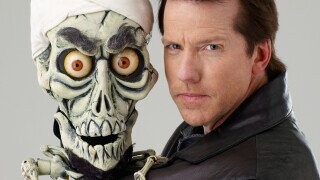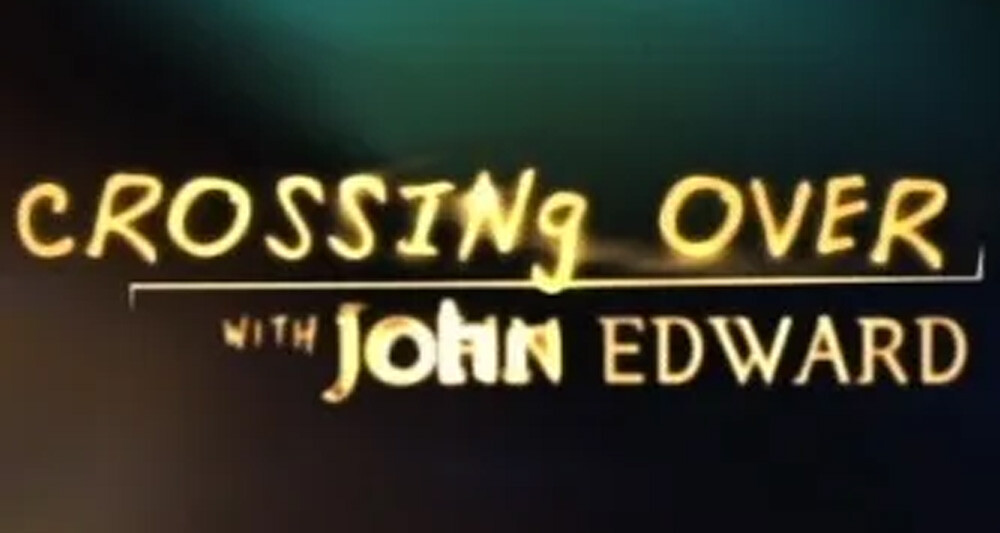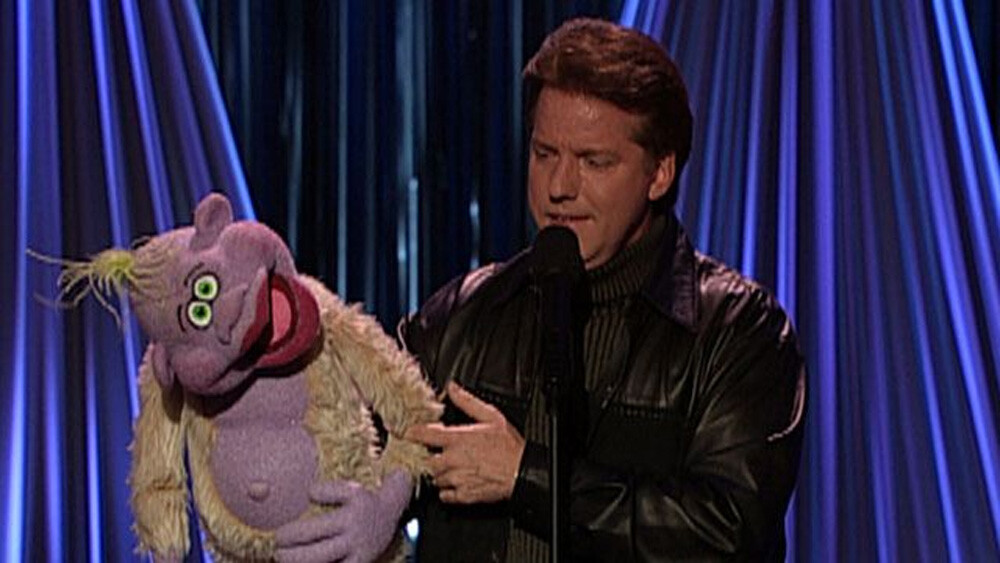Why Ventriloquists Are Here To Stay (Whether We Like It Or Not)

Welcome to ComedyNerd, Cracked's daily comedy Superstation. (The ventriloquist dummy says this part, head turned towards YOU) For more ComedyNerd content, and ongoing coverage of the Iran/Contra Affair, please sign up for the ComedyNerd newsletter below.
Don't Miss
Besides politics, ventriloquism is one of the most divisive forms of entertainment out there. It’s always been popular enough to remain relevant, yet a majority of people resent it on a level usually reserved for telemarketers. So, we’re gonna take a look at some of ventriloquism's history, its present state, and try to figure out why it's even still a thing.
History
Ventriloquism originates in an ancient Greek religious practice called gastromancy, where it was believed the ventriloquists divined voices of the dead from their bellies. So, next time you think a dummy or a puppet creeps you out, just be thankful you're not staring at a ventriloquist's exposed gut instead.

SyFy
Ventriloquism first gained mainstream popularity in the vaudeville era, but then again so did nearly every form of entertainment we enjoy today. Since vaudeville, ventriloquism has never gone away, but it’s never really been huge enough to have more than a handful of practitioners break through to household-name stardom.
Edgar Bergen, Willie Tyler, Señor Wences, Shari Lewis, Jim Henson, Jeff Dunham, Terry Fator, etc. all have had their time in the spotlight, but with very little overlap. Turns out, ventriloquists are a lot like white guys who play the acoustic guitar: there are a ton of them doing it, but only one or two of them seem to be hugely famous for it at any given time.
Clarification
Ventriloquists have always kinda stood on the fringe of the comedy world, in no small part because they are technically not considered comedy acts, at least in showbiz terms. Ventriloquists are a variety act. The ventriloquist might do some stand-up at the start before the puppets come out, but a large part of the appeal for ventriloquist acts is that they're a change of pace from a traditional stand-up show. Think of it like being a knuckleball pitcher in baseball.

Comedy Central
Not to say that automatically means puppet shows aren’t funny, as subjective as that may be. Sure, the jokes can be corny, the puppets look goofy as hell, but they have to go for laughs because there’s not a lot of money in the alternative. Does anyone really want to hear a puppet on stage discussing affordable housing?
The Horror Angle
There are countless examples of evil ventriloquist dummies in pop culture: Magic, Dead of Night, The Twilight Zone, Goosebumps, Dead Silence, etc. Pixar even had them as Gabby Gabby’s henchmen in Toy Story 4 who, given just one more second of screen time, would’ve lost the movie its G rating.
Why are ventriloquist dummies such a frequent horror trope? Maybe it's because we loved puppets as kids, and every innocent thing we loved back then could be made to terrify us as adults with the simplest modification. Here’s an example: Think of any nursery rhyme. Now, sing it slooooowly.

They'll hide and seek as long as they please
Cause that's the way the teddy bears have their picnic.
Another part of it is aesthetics and construction. A killer hand puppet could never drive a serious horror film. Felt is just too floppy to be terrifying. But a wooden dummy that is just inherently off-putting? Now there’s something we can work with!
Part of the appeal of ventriloquist dummies is that we can't take our eyes off of them. Their bodies make them look like they’d be easy to take on in a fight, but their heads make them look like they’d be impossible to destroy. They have those large eyes that could not only follow you around the room, but also peer into the darkest recesses of your soul. Their mouths are locked in a perpetual forced smile that inspires fear, not laughter.

It also doesn’t help that every ventriloquist constructs their act so the dummy is always in control. That’s why they typically break out a different puppet every ten minutes or so. Any longer than that, the audience will stop paying attention to the puppet and start staring at the ventriloquist instead. In short, if you're overshadowing the dummy, you're in trouble.
You Gotta Respect Their Commitment
Ventriloquism is a huge investment of time and money. For one, the skill set is ridiculously hard to master. The ventriloquist always plays two diametrically opposed characters simultaneously; voicing the wacky sidekick and reacting as the straight man, all the while operating the puppets and trying to avoid words that contain the letters B, M, or P. That stuff is way harder than you might think.

Puppets are also a sizable monetary investment as they are not cheap. Sure, you could get a Muppet-style hand puppet for less than $100, but articulated ventriloquist dummies can run at least a grand. And that’s just if you’re buying the off-the-rack models and developing a character that matches it. Custom-built puppets are at least five to six times that amount.
So, yeah, Terry Fator may not be your jam. But he deserves at least some acknowledgment for pulling off acting moves that go against every communication instinct we have as humans, all while skillfully working a puppet that probably costs more than your car.
It’s Not Without Controversy
Jeff Dunham (and Terry Fator to a slightly lesser degree) has come under fire for having a lot of racist, sexist, homophobic, transphobic, pretty much every kind of -ist and -phobic you could think of in his act. Most of these offensive remarks are very thinly veiled.

"Ha, ha! Settle down, Achmed."
But, it’s always the puppet saying the offensive stuff. That doesn’t make it okay, just seemingly more palatable for many. It's a dark side of the Uncanny Valley: The less realistic the character looks, the more horrifying things that character can ostensibly get away with saying. Put another way: If South Park had been live action, no network would ever have touched it. But since they are crudely rendered, cute cartoon characters, they not only get passes on being offensive, they get renewed through season 30.

Comedy Central
On the other hand, while the jokes may be told through the puppet, those words are still coming out of Jeff Dunham’s mouth. Is the man a racist just using puppets as proxies?
Where Does It Go From Here?
The only thing we know for certain is that ventriloquism is never gonna go away. Its popularity may ebb and flow like any other art form. New techniques will pop up, and it’ll keep passing through the occasional awkward phase. But it'll keep going as a form because like most things Ikea, it's modular … What if we take this, but make it raunchy? What if we make it terrifying? Okay, those aren’t working anymore, so let’s go back to making it innocent fun again.
Or use it to sell shitty sodas
For all its obvious nonsense, ventriloquism always is in a certain amount of demand. Out of the 13 winners of America’s Got Talent, three of them were puppet acts. Jeff Dunham and Terry Fator have been on Forbes’ top ten highest grossing comedian lists for twelve years straight. Which is an amazing feat because Dunham and Fator make the list strictly on touring, streaming and merchandise revenue. They don’t get a boost from starring in movies or sitcoms like the other comics on the list.
Maybe the secret to ventriloquism’s continued success is the same reason Long John Silvers is still in business: It’s just different. They have their die-hard fans, but for the most part, people check it out because nothing else out there sounds appealing that day. But maybe … just maybe … these acts have endured despite that kind of cynical dismissal.
And in that way, the dummy is no dummy.
Top image: Vent Haven Museum
